#danny oldsen
Explore tagged Tumblr posts
Text




Penguin arms.
80 notes
·
View notes
Text

Peter Capaldi - Danny Oldsen - Local Hero (1983)
50 notes
·
View notes
Text
ta-daaa
the community is now free for all, anyone can join, no invite necessary, I hope I don't get bots or anything but anyhoo, come find us on the Peter Capaldi Brainrot Center, where we share thirst traps, fanarts, fan edits, movie and tv reviews, opinions on hair, thighs and eyes and self-deprecating comments about how deranged we are in our love for the great and beautiful Peter Capaldi
ngl, it is still rather quiet for my tastes in there, so you come by and post literally fucking anything capaldi-related and you will get yourself on my christmas list, probably.
#peter capaldi#twelfth doctor#malcolm tucker#tristan campbell#danny oldsen#daniel hegarty#gideon shepherd#gavin bellini#zeno#zeno vedast#luke wakefield#vera reynolds#ronnie pilfrey#john frobisher#yeah that's enough tagging#you get the drift
4 notes
·
View notes
Photo
hungy

#peter capaldi#local hero#danny oldsen#Danny's adorable little face#Danny's hungry frowny face#poor baby
81 notes
·
View notes
Text
Peter Capaldi: ‘Every Doctor Who gets backlash’
The Thick Of It star on Scottish independence, why he’s leaving Doctor Who behind, dealing with fans, and his rare excursion into horror

INTERVIEW
The Telegraph
27 October 2022 1:16pm BST
Ed Cumming
“I’ve always liked a good horror film,” says Peter Capaldi. “I find them comforting, rather than disturbing.” On a rare day off, he likes to settle down with an old favourite – one of Peter Cushing’s Hammer horrors, say, or Dracula A.D. 1972. “Those films remind me of my childhood;” he adds, speaking over video from his home in Muswell Hill, North London. “I was brought up Catholic, so when I watched horror I think I saw something familiar – gore.”
In a nearly 40-year acting career, Capaldi has ticked off almost every genre, from historical drama to DC superhero movies, with plenty of comedy in between. His breakthrough as Danny Oldsen, the boyish Aberdeenshire oil executive in Local Hero (1983) was a comic role in a charming small-canvas masterpiece. Franz Kafka’s It’s a Wonderful Life (1993), a short film which he wrote and directed, and for which he won an Oscar, was a comedy, too. His Doctor Who had an irascible charm.
But his latest role marks a rare excursion into horror. The Devil’s Hour is a six-part series for Amazon Prime Video, and Capaldi’s old Doctor Who boss Steven Moffat is an executive producer. It tells the story of Lucy Chambers (Jessica Raine), a young mother who wakes up every night at exactly 3.33am, and experiences disturbing visions. Timed for the run-up to Halloween, the series is an unsettling vision of paranormal activity in the suburbs. Capaldi plays Gideon, an enigmatic figure who comes into Lucy’s life. To say any more would risk giving the game away.
It is perhaps surprising that Capaldi has not done more horror. In the nicest way possible, at 64, his lean frame and sharp features lend themselves to scary characters. Not to mention that grin, which he can flip from friendly to menacing with the merest twitch of his muscles.
Which is not to say that he has never played scary. His best known character, alongside the Time Lord, is Malcolm Tucker, The Thick of It’s snarling, savage bully of a communications director (Sample greeting: “come the f--- in or f--- the f--- off!”). It just happened that he was very funny, too. When it first aired 17 years ago, Armando Iannucci’s satire seemed like a supremely cynical view of British politics. Today it looks almost rose-tinted.
Capaldi’s own faith in British politics has been eroded over the past 12 years to the point where, as a Glaswegian, he would now support Scottish independence, he says. “It used not to be something I was particularly drawn to,” he says. I’ve lived in London for most of my life, and always loved Cardiff and Manchester and Belfast. But after the relentlessness of the past 12 years, everything we have been put through, it might just be time to go home and be a part of that.” So if there was another vote he’d support independence? “I would, yeah.”
He is still recognised for Doctor Who, of course. “Someone asked me for a selfie on the bus the other day and I felt bad, because I thought, ‘Should I refuse on the grounds it attacks the magic of Doctor Who to be photographed on the 97?’,” he says. “But then I thought, ‘No, that is actually very Who-ish.’” Russell T Davies is preparing an extravaganza for next year's 60th Who anniversary, which will include David Tennant, but Capaldi would rather let sleeping Doctors lie.
“In a story with all the Doctors in it, I don't know how you could get a fair crack at the whip,” he says. “But there's also this idea that when something's a successful brand you have to keep going back to it. I loved playing Doctor Who, but I'd rather leave it.”
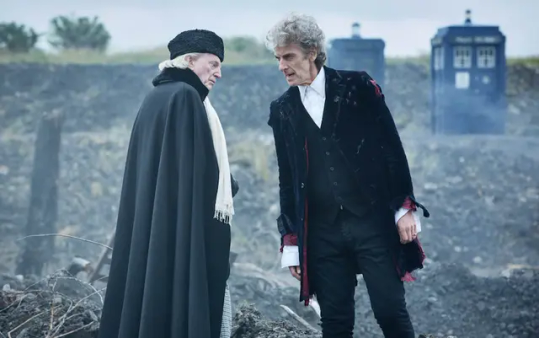
A new Doctor is on the way, played by Ncuti Gatwa, the first black lead. The outgoing Jodie Whittaker was the first woman. She endured a fair amount of abuse. Does Capaldi worry that Ncuti will suffer something similar?
“People love them,” he says. “We all got [backlash]. I got it. Matt [Smith, the 11th Doctor] got it. People loved Jodie; people loved me, people loved Matt. If a handful of people don’t, there will be another one along in a minute.”
Besides, as he says, nobody gets into the trade to stay humble. “You do not become an actor to have your feet on the ground,” he says. “These people who walk around saying, ‘I’m very real and authentic and thankful’ – why bother? You’d have been more unaffected by not joining.
“My parents were essentially immigrants, and lived in a tenement,” he says. His mother Nancy and father, Gerald, were Italian, and ran an ice-cream business in Glasgow. “This life was unimaginable to them. I’m not equipped to be blasé or have a sense of entitlement about what I’m lucky enough to do. That sounds pious. It’s great luck to have ended up like this.” I ask him where he keeps his Oscar. Leaning back in his chair, he peers at an unseen shelf. “It’s there,” he says, “behind some of the other trinkets.”

Doctor Who is not the only quintessentially British franchise in which Capaldi has appeared. In the recent Paddington films, he played Mr Curry, a grouchy neighbour. Was he surprised at the way the bear was taken up as a kind of national mascot in the days after the death of the Queen? “It’s interesting, thinking about franchises and brands,” he says. “Because what I like about those films is they are but they escape the erosion of the brand, because they have heart. They’re very sincere films. I know they make huge amounts of money, but it’s almost as though it wouldn’t matter if they didn’t.
“In all art, sincerity is what works,” he says, adding with a laugh: “If you can fake that, you’re home and dry.”
After The Devil’s Hour, we’ll see Capaldi in Criminal Record, a detective series for Apple TV+, in which he will star opposite The Good Wife’s Cush Jumbo. He also serves as executive producer, alongside his wife, Elaine Collins. Beyond that, he is happy to see what comes. “One of the great things about being an actor is not knowing. But what’s certain is that the ageing process takes its toll. Certain kinds of roles you might see yourself in are no longer open for you. But that’s alright.”
Surely there are other franchises that are crying out to be Capaldied: The Rings of Power, Game of Thrones, Star Trek, Star Wars? He has a copy of one of the Thrones books signed “to the Doctor” by Game of Thrones author George R.R. Martin, a devoted Who fan. As to being cast, the phone has yet to ring.
“It’s awful, isn’t it?” Capaldi says, with a grin. “But that’s show business. You think you’re getting somewhere, and then…”
The Devil's Hour comes to Amazon Prime Video on October 28
24 notes
·
View notes
Text
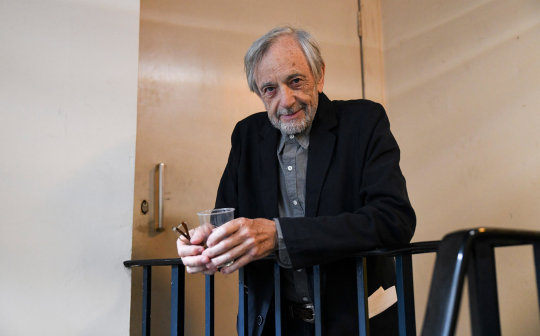
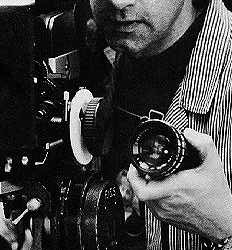
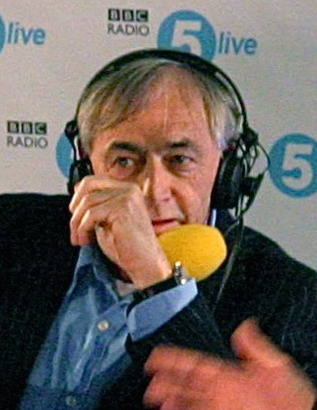
Happy Birthday Bill Forsyth the Scottish film director and screenwriter.
Born in Glasgow July 29th 1946 and educated at Knightswood School. On leaving aged 17, he answered an advertisement for a “Lad required for film company” and spent the next eight years helping make short documentary films.
Leaving documentary production in 1977, Forsyth wrote the scripts for Gregory’s Girl and That Sinking Feeling in the hope of breaking into feature films.
Obtaining finance, however, proved frustrating and problematic. The BFI Production Board rejected Gregory’s Girl three times. Forsyth later said, “I remember one torment of a meeting when I tried to explain that Gregory’s Girl was really a structuralist comedy… I suspect my script was too conventional although nobody actually told me as much.”.
That Sinking Feeling was eventually made in 1979 with amateur actors from the Glasgow Youth Theatre, including John Gordon Sinclair (who later took the lead in Gregory’s Girl , its tiny £5,000 budget was raised from a variety of sources.
Forsyth’s distinctive voice as writer-director is already apparent in this tale of a robbery of stainless steel sinks by a gang of unemployed Glasgow teenagers - intensely humanistic and humorous yet with an underlying seriousness of purpose. This ability to create a self-contained yet believable world with a keen sense of the absurd and bizarre in the everyday is perhaps only rivalled by the work of British television writer Alan Plater. The film opened to great popular and critical success at the Edinburgh and London Film Festivals but was unable to secure more widespread distribution.
Gregory’s Girl was Forsyth’s breakthrough film. This acutely observed story of adolescence and first love set in a Scottish new town was rapturously received by both critics and public alike. Forsyth’s reputation seemed to be secured by the success of his next venture, Local Hero, a first collaboration with producer David Puttnam.
In 1999 he made Gregory’s Two Girls as a sequel to Gregory’s Girl, with John Gordon Sinclair playing the same character, but it received mixed reviews.
Gregory's Girl, to me, is still a very funny film, but it feels dated, that's not to say that it hasn't stood the test of time with some folk, indeed The Glasgow Film Theatre (GFT) showed a 4k version of the 1980 cult classic last August 1which was followed by a Q&A session with some of the cast including Gordon Sinclair(Gregory), Clare Grogan.
In 2022 the popular Scottish actor Peter Capaldi spoke of how Bill Forsyth saved him from living off pakora and lager after featuring him in Local Hero. The Doctor Who and The Thick Of It star praised the Scots film director in an acceptance speech after receiving a Bafta Scotland Award for Outstanding Contribution to Film & Television.
I love Capaldi's affection for our country, speaking to the audience while holding his Bafta, Capaldi said the award was “for getting lucky, and for being lucky enough to be born in Scotland”.
He said: “Forty years ago I was just up here (in Glasgow) as an art student, living off pakora and lager for breakfast.
“Bill Forsyth scooped me up and put me in Local Hero.
“It was an act of kindness and confidence that baffled me and much of the industry to this day, but I wouldn’t be here without him and nor would a lot of others.”
Capaldi landed this breakthrough film role aged 24 playing Danny Oldsen, a naive young oil industry executive, in the film.
A number of actors, including Dee Hepburn, will be a part of a celebration of the films of Bill Forsyth at the Outwith Festival of music and arts which takes place in Dunfermline from September 3-8. It will also screen That Sinking Feeling and Local Hero at the city’s Carnegie Theatre.
16 notes
·
View notes
Photo

Today’s Autistic character of the day is:
Danny Oldsen from Local Hero
#headcanon#danny#danny oldsen#danny local hero#danny oldsen local hero#local hero#autism#autistic#actually autistic#autistic characters#autistic character of the day
26 notes
·
View notes
Text
AU where a young Malcolm Tucker starred in an Irn Bru commercial:

I can just see it now(!)
#malcolm tucker and the irn bru-verse#peter capaldi#young pcap did feature in a beer ad though(!)#irn bru#mypcap#danny oldsen
18 notes
·
View notes
Text

21 notes
·
View notes
Text




Danny Oldsen dances.
39 notes
·
View notes
Text
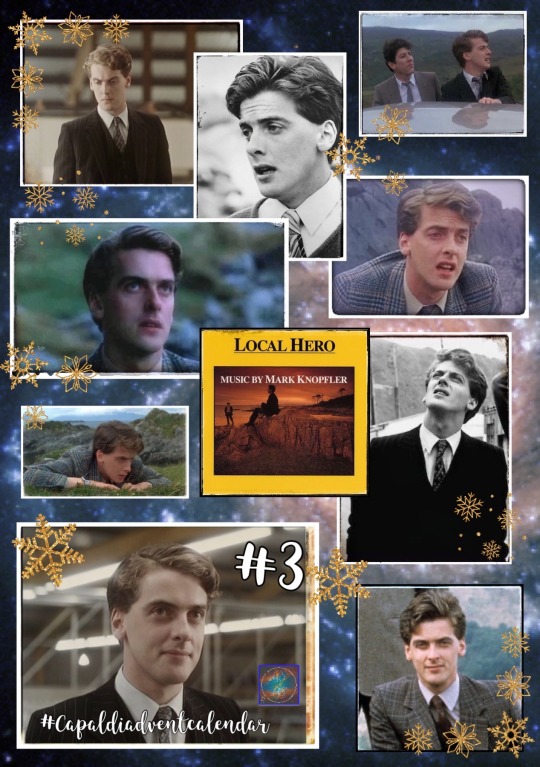
#peter capaldi#doctor who#twelfth doctor#the universe loves peter capaldi#petercapaldi#12th will always be my doctor#malcolm tucker#peter capaldi will always be my doctor#Danny Oldsen#Local Hero#CapaldiAdventCalendar
25 notes
·
View notes
Photo

My illustration for @rathzem !
195 notes
·
View notes
Text
How Mac and Danny faired in their days after the events of Local Hero
Come join Mac and Danny, as they take a look into the future.

Although their paths would never again cross, those paths did converge with one guy in particular.


Things didn’t go so well for Mac...

Danny was able to handle his business better.


If only Mac had learned to maim... psychologically.



Of course, it’s only because Danny met and learned from a much angrier Scot, but that’s a story for another day.

#Local Hero#In the loop#ttoi#Danny Oldsen#Danny and Mac#jamie macdonald#Malcolm Tucker#james gandolfini#Tony Soprano#Who'd a thunk that out of the two#It was Mac that was the softie#Peter Capaldi#Peter Riegert#I have fun that's the important thing#Gifs by me
10 notes
·
View notes
Photo


Danny & rabbit =)
64 notes
·
View notes
Text
INTERVIEW
Paul Dalgarno
First published in the Sunday Herald, 2008.
Peter Capaldi, the Scottish Oscar-winner, is about to blow, but not quite yet. His cropped and grey-flecked hair is getting closer to his eyebrows, but only because those eyebrows are raising sharply – the left one, in particular, arcs like a hieroglyph over his steely left eye.
He rubs his mouth, near seething, as if to hold the venom inside, and veins strain noticeably in his neck. "You've got to fucking do things my way, whether you like it or not," he says.
"You're just a journalist from the Sunday fucking Herald and I'm not interested in your opinions, OK? So just fucking listen or you will not talk to me, or have access to my people, as long as you fucking live."
Capaldi settles back in his seat, spent. He has a habit of slipping unannounced into the body of Malcolm Tucker, the foul-mouthed spin doctor he has made his own in the cult political satire The Thick Of It.
It's a little scary to be on the receiving end, even though he's just pretending, but he says he needs lots of practice. A full-length movie of the series is about to start filming. It will be set largely in Washington and placed loosely, but recognisably, in the context of the Iraq war.
The bile Capaldi brings to the role is born of past experience, dredged up and sieved into concentrated form, remoulded and transmitted like a virus through Tucker's pores.
Look at the highlights of Capaldi's career and you'd be pushed to find reasons for this anger: his breakthrough as Danny Oldsen in Local Hero in 1983, the Academy Award in 1993 for his short film Franz Kafka's It's A Wonderful Life, his fame, since 2005, as an Alastair Campbell-style attack dog in The Thick Of It.
But it's the decades in between, full as they have been with television roles, directing projects and bit parts in movies, that tell the real story. Not low points as such but ...
"Troughs" he says, unleashing an infectious and rattling laugh, his eyes tightly closed, his head tilting back. The real Peter Capaldi has returned, fully affable. When he laughs, it's hard not to get swept along, although it's not really clear why we are laughing.
"It's been great," he says. "I was at the Baftas two years ago for the first time in ages and bumped into a friend I'd worked with a very long time ago. He grabbed me and said, We're still here, mate' and that's true, we're still here. It's a great profession to be in, and to have survived in for so long."
He looks at the clock on his mobile phone, as if his life might be marked out digitally. But mere survival is not necessarily enough, he says, not quite the fulfilment of his life's acting ambitions. He turns 50 next week – a bugbear but no real biggy.
"It's OK," he says. "But I wish I was 40. My father died a couple of years ago and at my age that starts happening to a lot of your peers and friends so you become more conscious of the ever-darkening shadow. But that's fine, it sort of propels you into doing more. Both myself and my wife are actually busier than we've ever been and that's a fantastic place to be."
His wife, Elaine Collins, was also an actor and now develops programmes for ITV, which provides Capaldi with an alternative view of his profession. Their 15-year-old daughter, Cissy, has no ambition to follow in their acting footsteps, a decision that cheers Capaldi no end, even though he's not lacking offers of work.
After The Thick Of It movie �� provisionally called In The Loop – he will start filming another series of the show for BBC Two. He is currently having a prosthetic head made for The Devil's Whore, a forthcoming mini-series in which he will play Charles I in the weeks leading up to his execution.
Later this month he will guest star in Doctor Who as Caecillius, a marble dealer from Pompeii, who befriends the doctor and his new assistant.
Touching the Tardis was a dream, a flashback to the Jon Pertwee era of the show and his own childhood. "When I was a kid I wrote to the BBC and the producers sent me a huge package through the post with Doctor Who scripts," he remembers. "I'd never even seen a script and couldn't believe that they actually wrote this stuff down. It sort of opened a door."
Until that point, doors had led in and out of rundown Glasgow tenement blocks in Keppochhill Road, Springburn, where the Capaldis and their relatives lived. On one side of the road – "the tough side" – were his mother's family, who came from Killyshandra in Ireland's County Cavan; on the other side was his father's family, who came originally from the hillside village of Picinisco in central Italy.
Capaldi only recently discovered that The Thick Of It writer and director Armando Iannucci was raised in the same street and that their parents had once been friends.
The one time he visited Picinisco, he was struck by a war memorial in the main plaza with surnames he recognised from Glasgow fish and chip shops, hairdressers and ice-cream parlours. His own family's exodus began with his grandfather, one of seven brothers who went to America and lost a leg building the Brooklyn Bridge, before ending up, after stints in Newcastle and Liverpool, finding work in a Glasgow café. Or at least that's the myth.
"It's hard because people tell you things, but the more I think of it now, the more I think they just made it up," he says. "In those days people could just disappear, and maybe they went to prison. For all I know, my grandfather was a bank robber in Kilsyth. But I always thought it was funny that my grandparents had bought a ticket to New York and ended up in Glasgow."
Capaldi's father drove an ice-cream van, selling the gelati he made in a makeshift factory not far from the Keppochhill tenements. The family wanted to point the young Capaldi in a different direction – one that would eventually lead to him studying illustration at Glasgow School of Art, where he also enjoyed a stint as the frontman in a punk band called The Dreamboys.
"There were always pens to draw with, or a piano if you wanted to learn music," he says. "My grandmother used to say it was an Italian thing, that all the great artists came from Italy. She somehow felt it was appropriate to encourage that in me, although I don't think it was ever thought about consciously."
He had already tried and failed to gain a place at a London drama school when he got his big break opposite Burt Lancaster in Bill Forsyth's film Local Hero. The director had been visiting Capaldi's landlady, a costume designer, when the 25-year-old art student stumbled into his life. "I was just renting a room," says Capaldi.
"They had worked together before on a one-off BBC Scotland film called Andrina. I came home one night the worse for wear and my landlady introduced me to Bill. I was intoxicated but also reasonably amusing." Quarter of a century later, he is still recognised for his part in the film, and particularly by fans in America.
"They're an odd race," he says. "The ones who love that film seem to watch it five times a year or more." The decade that followed the film's release was spent in London bedsits mostly, doing repertory theatre, and feeling nervous and unsure of his abilities.
His past resurfaced in his 1992 screenwriting debut, Soft Top Hard Shoulder, a film in which he starred with his wife, playing an arty and largely disinterested heir to a Scots-Italian ice-cream dynasty. An ice-cream van pops up again briefly in the commercially unsuccessful Strictly Sinatra, a Glasgow gangster film he wrote and directed in 2001, and which starred Ian Hart and Kelly Macdonald.
He takes ultimate responsibility for the film's failure, citing his own directorial inexperience and a series of crippling hitches. The title had originally been Saracen Street, and its replacement still makes him cringe. "Nobody would give me any money unless I made compromises and in the end there were too many," he says.
"The producers only liked half of the film and I just thought, Fuck it – half a film is better than nothing'." Unsurprisingly, the end result was uneven, and Capaldi went into meltdown. "I should have just gone and done something else, but being Scottish, I wore black and went into mourning for five years. I decided that was my comfort zone, which was crap. But then, looking back, it was a tremendously educational experience."
Eight years earlier, in 1993, he faced another stiff learning experience. The Oscar success of Franz Kafka's It's A Wonderful Life set Hollywood execs on a charm offensive. Bob Weinstein of Miramax snapped up the rights to a feature-length film script Capaldi had written and even Kafka would have been pleased with the plot turns that followed.
"We developed the script for about a year and a half and then they said they were going to make the film," he remembers. "I immediately flew to New York to start putting the production together but while I was in the air they changed their minds. When I got to the office they said, We're not going to do this any more. Here's a plane ticket. Off you go.' By that time it was more than a year since the Oscar win and nobody wanted to know me."
Cue a familiar sensation of uncertainty and self-doubt. He was inadequately prepared to deal with fame, he says, to take advantage of opportunities when they came his way, to forge ahead when things looked bad. "I would go into rehearsal rooms where people had been to RADA or Oxford and just tug my forelock," he says.
"My parents didn't take me to the theatre to see Chekhov when I was growing up – we went to see Francie and Josie once every five years. It might sound odd because I always seemed very arrogant but I was actually terrified. I wasted years fretting about it all, trying to do the right thing, being neurotic, but there was actually nothing to worry about."
The decision not to mope around in misery for the rest of his life, and to enjoy himself more, was made when he was 43, and marked the end of his Strictly Sinatra depression. The relaxed look suits him. In fact, it's hard to imagine Capaldi as anything other than he appears today – carefree, a little battered by life, but no more so than anyone else.
He has developed a "this is about to happen" approach when speaking about things, even though they might never happen at all. He has spent much of the last seven years on The Jacobite Slipper, a feature-length script he has written and plans to direct.
Ewan McGregor is reported to be the producer, after coming in on the project several years ago, and is down to play four different roles in the film. The plot revolves around the making of a fictional 1938 film about Bonnie Prince Charlie, on a studio set with painted glens, lace costumes and powdered wigs.
"One of the extras is a dead ringer for Bonnie Prince Charlie, who is an alcoholic and vanishes when the film goes into production," says Capaldi. "The star is replaced by the extra, without the extra ever knowing that he's been duped into this role."
And what stage is it at now? Has initial filming started? "No," he says. "It's basically nowhere." His laughter erupts, sweeps both of us up, stops dead. "If I start talking about the legal issues I'll just get more crappy letters," he says. "But the film has been endangered." Filming could start very soon, or in five years, or maybe never.
"What people don't get is that I don't care," he says. "If it doesn't happen then so what? It's only a film. I'd love to make it, but there's no point making a film unless I can have enough traction over it to fill it with my own creativity. I can't be arsed, you know, but it's taken me years to realise that."
He enjoys painting and drawing, which he does every day, following a conscious decision some time ago to reincorporate art into his life. He draws the storyboards for films that never get made, sometimes to tell the story explicitly, and sometimes to capture the "feel and atmosphere" of an idea. There are other things he could try – directing episodes of The Bill, being a strictly commercial television writer – but he's not hugely interested, regardless of financial necessity.
He still regards himself as an actor first and foremost, which raises a seemingly obvious question: why get involved in the process of writing films, and trying to breathe life into them, when they seem destined to die on the vine? "I'm creative," he says. "I can't relax unless I've got some project on the go. I'm somebody from art school, and art school during the punk era, when you just had a go at whatever came along."
Now that punk is dead, and he is 50, he is determined to get his kicks where he finds them. "I just consciously try to enjoy the good things that are happening," he says. "And if it ended tomorrow that would be fine." He smiles, reconsiders. A hint of Malcolm Tucker flashes across his face, as if another bodily possession is imminent.
"People talk such shit in interviews. There's no control, nobody's got any control. I can sit here and say I'll be doing The Jacobite Slipper, or another series of The Thick Of It, but then you get a phone call and somebody says, look at the papers tomorrow' and everything's fucked." He laughs, but only half convincingly. "There's always a cosmic sledgehammer just waiting to destroy all your plans."
#peter capaldi#interview#paul dalgarno#2008#sunday herald#the thick of it#local hero#strictly sinatra#ewan mcgregor
7 notes
·
View notes
Text
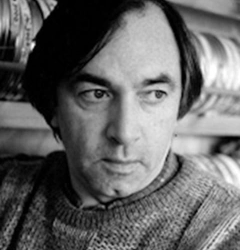
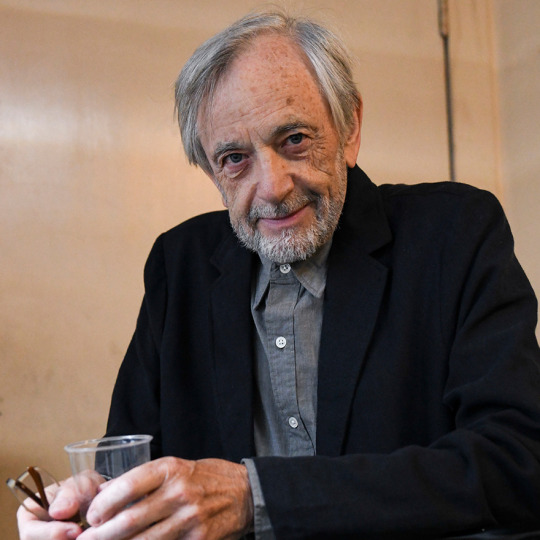
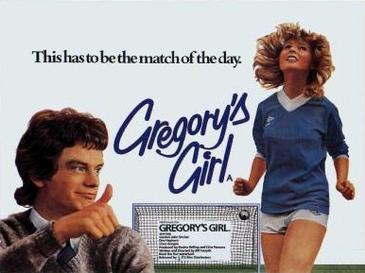
Happy Birthday Bill Forsyth the Scottish film director and screenwriter.
Born in Glasgow July 29th 1946 and educated at Knightswood School. On leaving aged 17, he answered an advertisement for a “Lad required for film company” and spent the next eight years helping make short documentary films.
Leaving documentary production in 1977, Forsyth wrote the scripts for Gregory’s Girl and That Sinking Feeling in the hope of breaking into feature films.
Obtaining finance, however, proved frustrating and problematic. The BFI Production Board rejected Gregory’s Girl three times. Forsyth later said, “I remember one torment of a meeting when I tried to explain that Gregory’s Girl was really a structuralist comedy… I suspect my script was too conventional although nobody actually told me as much.”.
That Sinking Feeling was eventually made in 1979 with amateur actors from the Glasgow Youth Theatre, including John Gordon Sinclair (who later took the lead in Gregory’s Girl , its tiny £5,000 budget was raised from a variety of sources.
Forsyth’s distinctive voice as writer-director is already apparent in this tale of a robbery of stainless steel sinks by a gang of unemployed Glasgow teenagers - intensely humanistic and humorous yet with an underlying seriousness of purpose. This ability to create a self-contained yet believable world with a keen sense of the absurd and bizarre in the everyday is perhaps only rivalled by the work of British television writer Alan Plater. The film opened to great popular and critical success at the Edinburgh and London Film Festivals but was unable to secure more widespread distribution.
Gregory’s Girl was Forsyth’s breakthrough film. This acutely observed story of adolescence and first love set in a Scottish new town was rapturously received by both critics and public alike. Forsyth’s reputation seemed to be secured by the success of his next venture, Local Hero, a first collaboration with producer David Puttnam.
In 1999 he made Gregory’s Two Girls as a sequel to Gregory’s Girl, with John Gordon Sinclair playing the same character, but it received mixed reviews.
Gregory's Girl, to me, is still a very funny film, but it feels dated, that's not to say that it hasn't stood the test of time with some folk, indeed The Glasgow Film Theatre (GFT) will show a 4k version of the 1980 cult classic on August 17th, which will be followed by a Q&A session with some of the cast including Gordon Sinclair(Gregory), Clare Grogan, tickets go on sale this Monday (31s) at 12 noon.
Last year the popular Scottish actor Peter Capaldi where he spoke of how Bill Forsyth saved him from living off pakora and lager after starring him in Scottish cult classic Local Hero. The Doctor Who and The Thick Of It star praised the Scots film director in an acceptance speech after receiving the Bafta Scotland Award for Outstanding Contribution to Film & Television on Sunday.
I love Capaldi's affection for our country, speaking to the audience while holding his Bafta, Capaldi said the award was “for getting lucky, and for being lucky enough to be born in Scotland”.
He said: “Forty years ago I was just up here (in Glasgow) as an art student, living off pakora and lager for breakfast.
“Bill Forsyth scooped me up and put me in Local Hero.
“It was an act of kindness and confidence that baffled me and much of the industry to this day, but I wouldn’t be here without him and nor would a lot of others.”
Capaldi landed this breakthrough film role aged 24 playing Danny Oldsen, a naive young oil industry executive, in the film.
6 notes
·
View notes